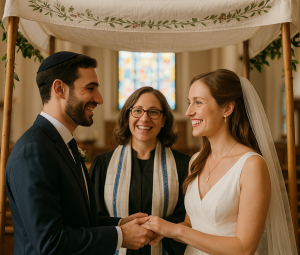 TORONTO — Erna Paris, an award-winning Toronto-based writer who has focused on international human rights abuses in several books, has been named to a Canadian panel that focuses on global human rights abuses in a world awash with injustices.
TORONTO — Erna Paris, an award-winning Toronto-based writer who has focused on international human rights abuses in several books, has been named to a Canadian panel that focuses on global human rights abuses in a world awash with injustices.
Erna Paris
Paris was recently asked to join the honorary council of the Canadian Centre for International Justice (CCIJ), whose members include former NDP leader Ed Broadbent and Flora MacDonald, a former foreign minister.
In co-operation with survivors of genocide, torture and other atrocities, the CCIJ strives to bring perpetrators to trial.
“I must say I was humbled by this invitation, especially when I was told about the distinguished company I’d be keeping,” said Paris in an interview last week. “When one works alone, as all writers do, it is a thrill to be recognized.”
Jayne Stoyles, executive director of the CCIJ, said Paris was chosen because of her “outstanding work” as an author and her understanding of the role of the emerging system of international justice.
“She brings to us a wealth of expertise and contacts, and beyond that, she is just a wonderfully warm and committed individual.”
Born and educated in Toronto, Paris began her career as a magazine journalist, book reviewer and radio broadcaster before turning to writing non-fiction.
The first of her seven books, Jews: An Account of Their Experience in Canada, was followed by Stepfamilies: Making Them Work, Unhealed Wounds: France and the Klaus Barbie Affair, The Garden and the Gun: A Journey Inside Israel, The End of Days: Tolerance, Tyranny and the Expulsion of the Jews from Spain and Long Shadows: Truth, Lies and History.
Her latest book, published in Canada last year, was The Sun Climbs Slow: Justice in the Age of Imperial America, a historical account of global justice and the politics behind the United States’ opposition to the establishment of a permanent international criminal court.
Asked what she can contribute to the CCJI, Paris – chair of the Writers’ Union of Canada – replied, “I don’t know yet, but its interests mesh closely with my own, so I’ll find my way.”
She thinks highly of the CCJI.
“It’s an important organization because there are an estimated 1,500 war criminals living in Canada. Many of these people arrived here as refugees after the genocides in Rwanda, Bosnia-Herzegovina and Darfur. They joined Holocaust-era criminals who were never properly brought to justice.
“The CCIJ is pushing hard to bring as many of them as possible to trial in our courts as a national complement to the global work of the International Criminal Court. It’s possible to do this now, because in 2000, the Canadian government passed the Crimes Against Humanity and War Crimes Act, which incorporated these so-called international crimes into our domestic law.”
She cited the Desire Munyaneza case as an example. Last May, the CCIJ scored a major breakthrough when a Quebec court convicted Munyaneza – a Rwandan living in Canada – for his role in the 1994 massacres in the African nation of Rwanda.
“This was Canada’s first use of the new law, and the court’s decision was praised internationally as a landmark in the protection of human rights.”
Paris said the CCJI is planning more legal interventions and also helping refugees and immigrants who were subjected to torture and now seek legal recourse.
In her judgment, the worst human rights violations today occur in Africa, “where hundreds of thousands of civilians have been killed, mutilated and rendered homeless and where children have been abducted into murderous gangs and sometimes forced to murder members of their own families.”
Such crimes have occurred in such countries as Sudan, Congo, Uganda and the Central African Republic.
Turning to the issue of war criminals in Canada, Paris said the CCJI has met with Canadian Jewish Congress and is ready to back a campaign aimed at individuals implicated in the murder of Jews during the Holocaust.
“The Jewish community has called for war crimes trials for decades, to little avail. And in the 1990s, years of Canadian government inaction were compounded when the Supreme Court allowed a defence of ‘following orders’ in the notorious case of Imra Finta.”
Asked whether Israel violated international law when it invaded Gaza last winter, Paris said, “This is the subject of Justice Richard Goldstone’s inquiry, which is expected to report soon. He is one of the world’s most respected jurists, and a Jew. There is no one on the international legal stage with more credibility in terms of character, integrity and objectivity.
“This is why it is a pity, in my opinion, that Israel has so far refused to co-operate. But even without formal co-operation, Goldstone has interviewed Israelis who were victims of Hamas rocket attacks. His conclusions will be taken very seriously by the international community and also by Israeli leaders, I’m sure, even if they deny this publicly.”
Asked to compare the way the rule of law is observed in Israel versus the Arab world, she said, “There’s no comparison. Within its borders, Israel has an internationally respected justice system, while most Arab countries do not.”
Paris said that while the Obama administration has not formally withdrawn U.S. opposition to the creation of a permanent international criminal court, it has eased its position.
“In doing this, it has merely continued a warming that began under the Bush administration, which effectively allowed a vote to go through the United Nations Security Council to refer the genocide in Darfur to the International Criminal Court for investigation.”
Paris’ interest in human rights stems from an early 1960s visit to a deserted Nazi death camp in the Vosges mountains of France.
“A guide showed me the gas chamber and dissection tables. Prisoners had been transferred there from Auschwitz. No one was talking about such things in those days, least of all the French.
“Although I didn’t begin to research and write books until 15 or 16 years later, I believe it was that shocking visit that unconsciously shaped my future as a writer, starting with a study of French historical memory in Unhealed Wounds: France and the Klaus Barbie Affair.”
She added, “In this sense, much of my life’s work has followed from the shock of discovering the Holocaust as a rather ignorant young Jewish Canadian.”






